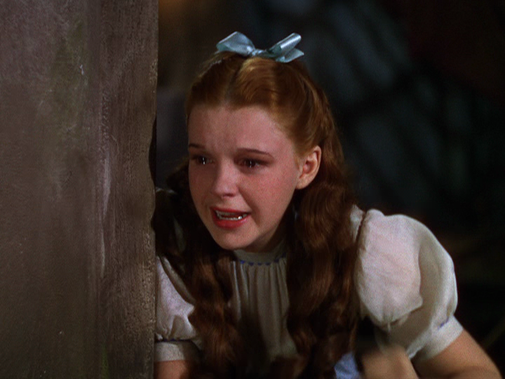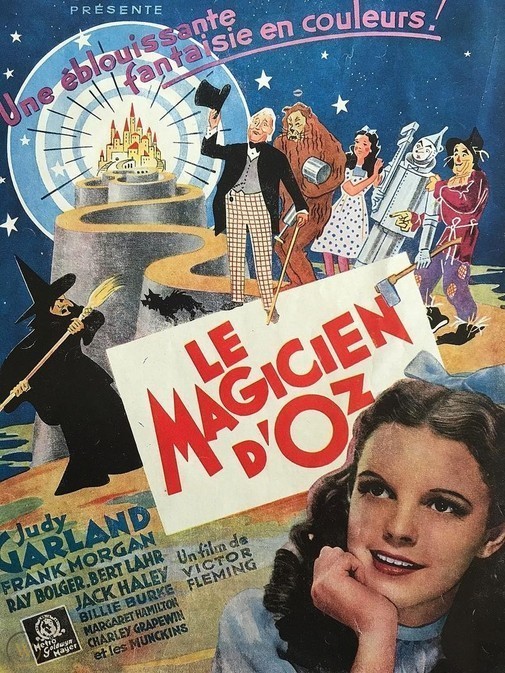Team Experience is revisiting a dozen Judy Garland movies for her Centennial. Here’s Brent Calderwood to kick us off...
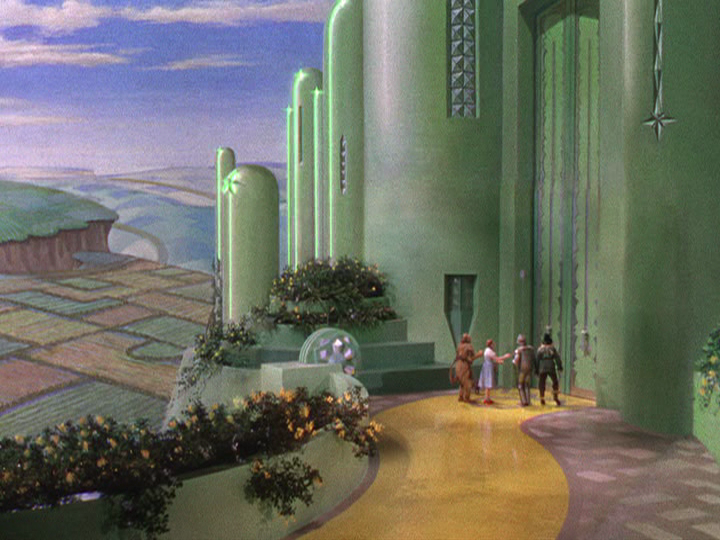 The Wizard of Oz is more than an insanely watchable film—it’s a gateway to a lifelong appreciation of Judy Garland.
The Wizard of Oz is more than an insanely watchable film—it’s a gateway to a lifelong appreciation of Judy Garland.
“It was a place. And you and you and you and you were there.” Judy Garland as Dorothy Gale took us along with her to Oz, and we believed. It was more than the glorious art direction—head-high hibiscus, an acre of artificial poppies, and real birds in the forest including cranes and a peacock. It was Judy Garland’s performance. No, not her performance—it was Garland inhabiting Dorothy, a sixteen-year-old becoming a nine-year-old girl. This woman-child made us feel her vulnerability, and revealed a heart as big as a farmhouse. (One of my favorite moments is when Dorothy is trapped in the Wicked Witch’s castle, trembling with fear, and Toto escapes. “He got away! He got away!” she cries, with real tears of joy and empathy for her terrier streaming down her cheeks amid the terror.) ...
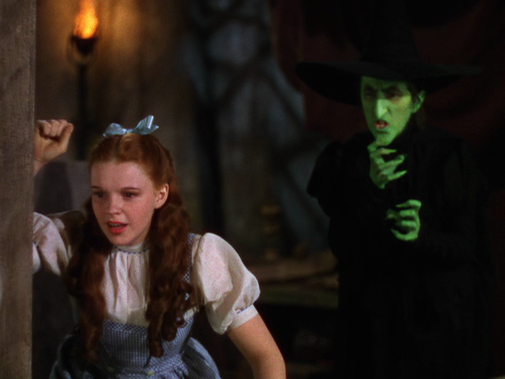
Without Judy Garland at its center, The Wizard of Oz wouldn’t have had its staying power, not by a long shot. If MGM had cast Shirley Temple or Deanna Durban in the role as some execs had wanted, The Wizard of Oz would surely have stayed as flat as its matte backgrounds and painted yellow bricks. It would likely be as well remembered as Hollywood’s previous all-star live-action musical fantasy, 1933’s Alice in Wonderland (with Cary Grant as the Mock Turtle, but do you remember it?). Any other girl dancing with a scarecrow would be as corny as the tween Shirley Temple’s color fantasy dream sequence in the otherwise charming The Little Princess (1939). Try, just try, to imagine The Wizard of Oz without Judy Garland. It wouldn’t transport us so purely from Kansas to Oz and back again. Judy Garland was the medium who made us believe.
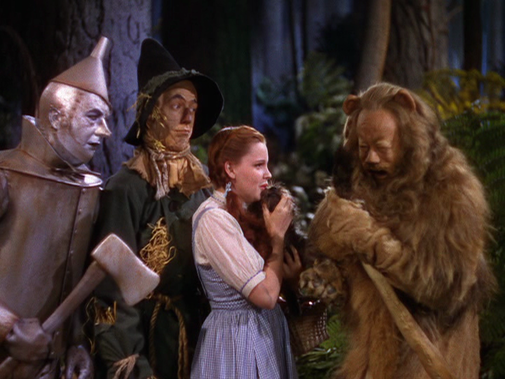 Judy stifles her giggles as Bert Lahr hams it up.
Judy stifles her giggles as Bert Lahr hams it up.
It’s hard to say anything about The Wizard of Oz that hasn’t been said before—Oz is, after all, the most seen movie of all time, according to the Library of Congress. It’s also hard to share facts that haven’t been told thousands of times before, both the true stories (director Victor Fleming slapped Judy Garland when she got a case of the giggles that slowed down production) and the alternative facts (for years the rumor went around that a Munchkin had hanged himself from a tree and could be seen dangling in a forest scene, but it was just a crane moving in the background). Most of all, it’s hard to say much about Judy Garland—widely described as the greatest all-around entertainer who ever came out of Hollywood—that hasn’t been said a thousand times before. So forgive me if I just ramble. Hopefully it will lead somewhere.
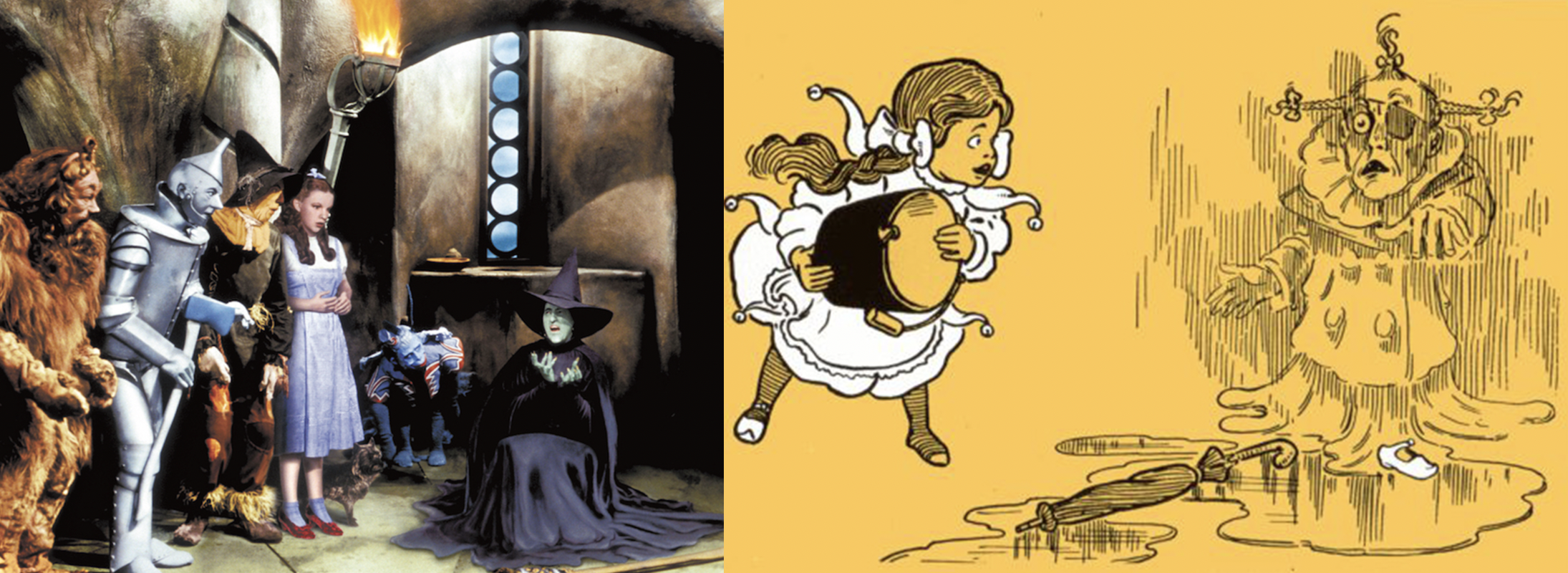 Film vs. Book (the film wins)
Film vs. Book (the film wins)
The Wizard of Oz is one of those rare examples of a movie that far surpasses the book on which it’s based. In L. Frank Baum’s novel The Wonderful Wizard of Oz, the Wicked Witch of the West enslaves Dorothy and trips her while she’s mopping the castle floors, hoping to make her fall out of her silver shoes; but Dorothy gets PO’ed and throws a bucketful of water on her, after which the witch melts away like a candle. Then Dorothy and her friends spend the last third of the book having more adventures along the Road of Yellow Bricks. The story is episodic with no clear narrative arc (which is also true of Lewis Carroll’s Alice’s Adventures in Wonderland and the reason a definitive film adaptation has eluded it). It’s a tribute to the magic of MGM, with its arsenal of songwriters, screenwriters, character actors, and craftspeople, that The Wizard of Oz is the masterpiece that it is. But again, more than anything, it’s because of Judy Garland.
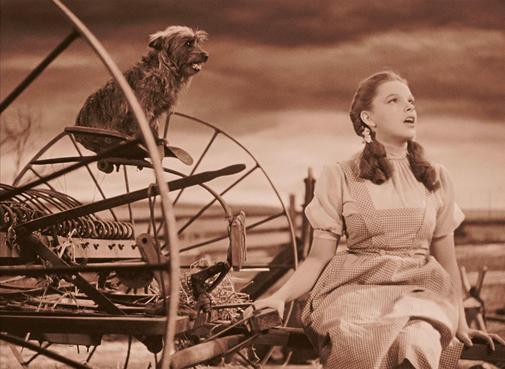 The song and scene that made many of us fall in love with Judy Garland.Beyond being an insanely rewatchable movie, The Wizard of Oz has served another important cultural purpose: it's a gateway drug for the magic of Judy Garland. When she sings “Over the Rainbow,” we fall in love with her: her talent, her phrasing, her ability to make her giant singing voice a seamless extension of her speaking voice and an expression of her character’s lived experience. This was an ability she brought to all her best pictures.
The song and scene that made many of us fall in love with Judy Garland.Beyond being an insanely rewatchable movie, The Wizard of Oz has served another important cultural purpose: it's a gateway drug for the magic of Judy Garland. When she sings “Over the Rainbow,” we fall in love with her: her talent, her phrasing, her ability to make her giant singing voice a seamless extension of her speaking voice and an expression of her character’s lived experience. This was an ability she brought to all her best pictures.
Those who fell in love with her, and they were legion and continue to be, wanted to follow her from film to film. (Isn’t love like Oz? You fall in love and suddenly the whole world turns to color.) She made us believe that Mickey Rooney—who stood 5'2" to her 4'11" unless she wore heels—was a hunk she looked up to; that it wasn’t crazy to fall in love with a boy next door without ever having spoken to him; that it’s better to burn up than let a man get away. We followed her, and all because of the movie that made her a star. Because we believed.
More for Judy's Centennial
• The Wizard of Oz (1939)
• Babes on Broadway (1942)
• Meet Me in St Louis (1944)
• The Clock (1945)
